Murad Nasirov, 28, joined the information marathon "We are different, we are equal, we are united" (about how national communities and indigenous peoples of Ukraine are resisting Russian aggression) remotely. The representative of the United Azerbaijani Diaspora of Ukraine and a member of the Ukrainian Armed Forces spoke about the defenders who call themselves Muslims.
"In Ukraine, there are Chechens, Azerbaijanis, Crimean Tatars, Abkhazians, Dagestanis and other Muslim peoples who have been doing everything to preserve Ukraine since the beginning of the Great War," said Murad Nasirov, commander of the artillery battery of the 23rd separate battalion of the Special Forces of the Separate Presidential Brigade. On the contrary, we need to unite even more, especially now, in winter."
Ukrinform asked Senior Lieutenant Murad Nasirov in more detail about more than a thousand Azerbaijanis who are defending our land in the current Russian-Ukrainian war. Murad speaks Ukrainian flawlessly.
PEOPLE CRIED WHEN THEY WERE BROUGHT FOOD, BECAUSE THEY HAD BEEN FORGOTTEN FOR 7 DAYS
- Murad, why is it important for you, an Azerbaijani, a Muslim, to defend Ukraine?
- Ukraine needs help. This help from minorities is appropriate and necessary from the standpoint of humanity. We call ourselves Muslims, and it was a matter of honor for us to stand up for Ukraine.
- When exactly did you join the defense of Ukraine after the full-scale invasion of the enemy?
- I am a citizen of Ukraine, as of February 24, 2022, I was registered in Cherkasy region, but I was in Kyiv. On the first day of Russia's full-scale attack on Ukraine, several friends and I applied to four military commissariats in the capital to get permission to use our previously registered weapons. In particular, we applied to the Darnytsia military commissariat, Desnianskyi and Shevchenkivskyi. We managed to get ammunition in Obolon district.
- What tasks did the volunteer legion you initially served in perform?
- We immediately joined the territorial defense. Our Legion D patrolled the streets of Kyiv, stood at checkpoints in Bortnychi, and went to clear the forests around the capital from illegal armed groups, mostly at night.
- What did you do during the day in the first weeks of the Great War?
- Before the war, I was a jeweler, and I had some savings. And we started helping the weak, when in the last days of February and March there were problems with food supplies. Even perfectly healthy civilians found it difficult to move around in the cities, let alone between settlements. So my brother Alim Nasirov, my brother-in-law Dmytro Solonyshyn, and I, with whom we were together in Bakhmut, bought food, arranged for a restaurant to cook it, and delivered it to those who needed it most.
It was mostly Kyiv region. In the first days of March, we drove our car to a nursing home in Zazymia. We could hear explosions and how our and the enemy's aircraft were working. Pensioners and disabled people were crying when we brought them that food. Because for 7 days these people seemed to be forgotten. I was not only afraid, but morally very difficult, because I realized that an elderly disabled person cannot get out on his own when there is a military danger. These people later called us with gratitude when we were already at the front.
We also went to Dymerka, Irpin, Bucha...
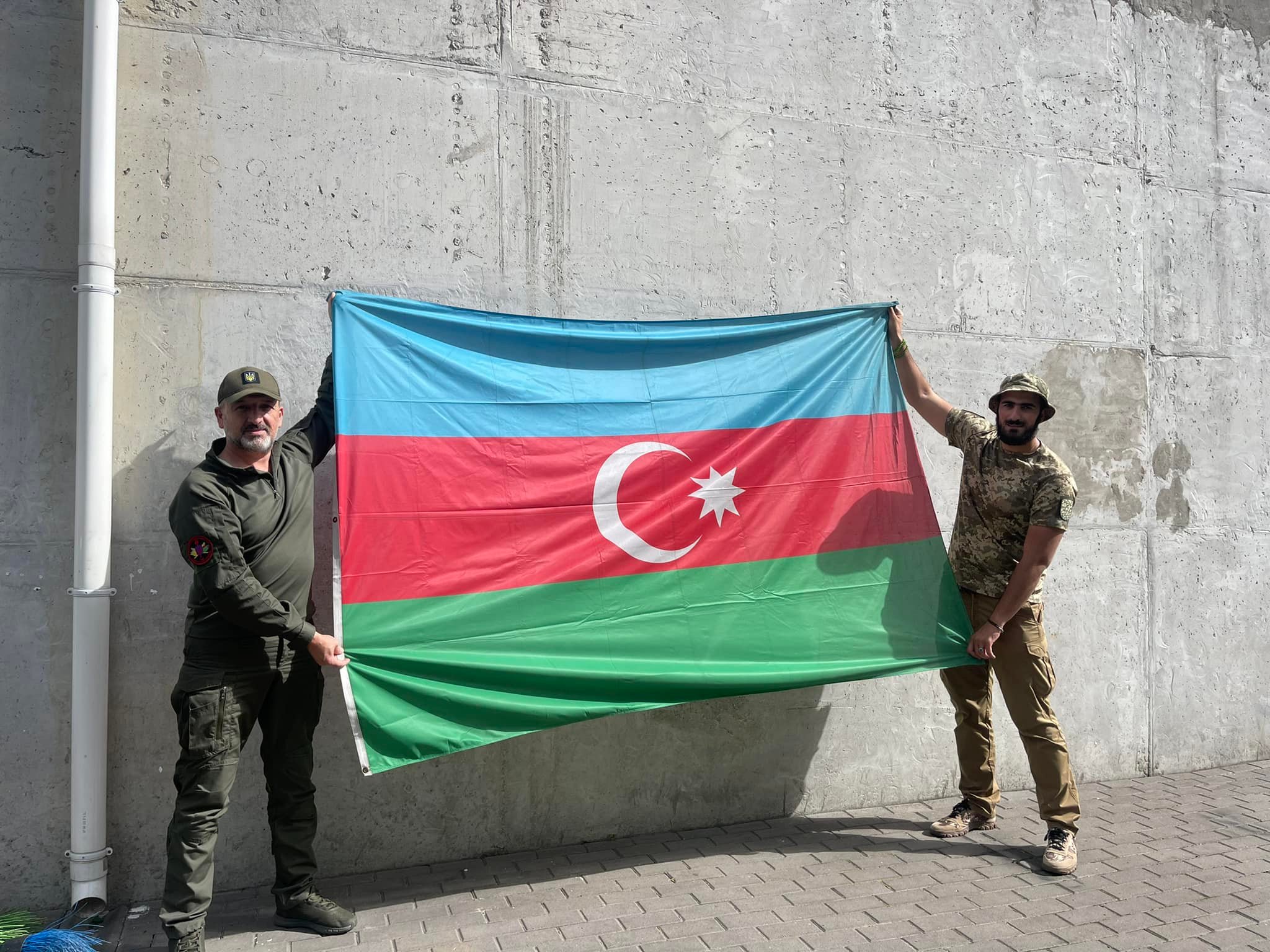
CHECHENS, AZERBAIJANIS, GEORGIANS, ABKHAZIANS, AND OSSETIANS UNITED AGAINST RUSSIAN AGGRESSION
- You say that even six months before February 24, 2022, you knew that the Russian Federation would start a full-scale war in Ukraine. What was this confidence based on, the experience of relations between Azerbaijan and Russia?
- Russia attacked Azerbaijan on January 20, 1990. It brutally killed innocent people, my fellow countrymen... 147 civilians were killed, 744 were wounded, and 841 people were illegally arrested.
And I realized that what had been happening in the Donetsk region since 2014 could be scaled up. In 2016-2017, we traveled to Shumy, Chasiv Yar, Toretsk, among others, and provided assistance. At that time, I was graduating from the Chernyakhovsky Defense University. At that time, we did not have enough weapons, and as a battery commander, I was tasked with saving the lives of our soldiers. And we fulfilled it.
- When did you return to the Armed Forces of Ukraine?
- At the end of March 2022. We all united - Chechens, Azerbaijanis, Georgians, Abkhazians, Ossetians. As Caucasians, we supported each other. I would like to remember with a kind word an Ossetian Murat Khachmazov, who helped us financially from the very first days. And when we went to the front, he gave us more than one car to perform combat missions. Murat never mentioned this. But such support really gave us strength: not to despair and do everything to save Ukraine.
Today, our native Ukraine is fighting for independence for the whole world.
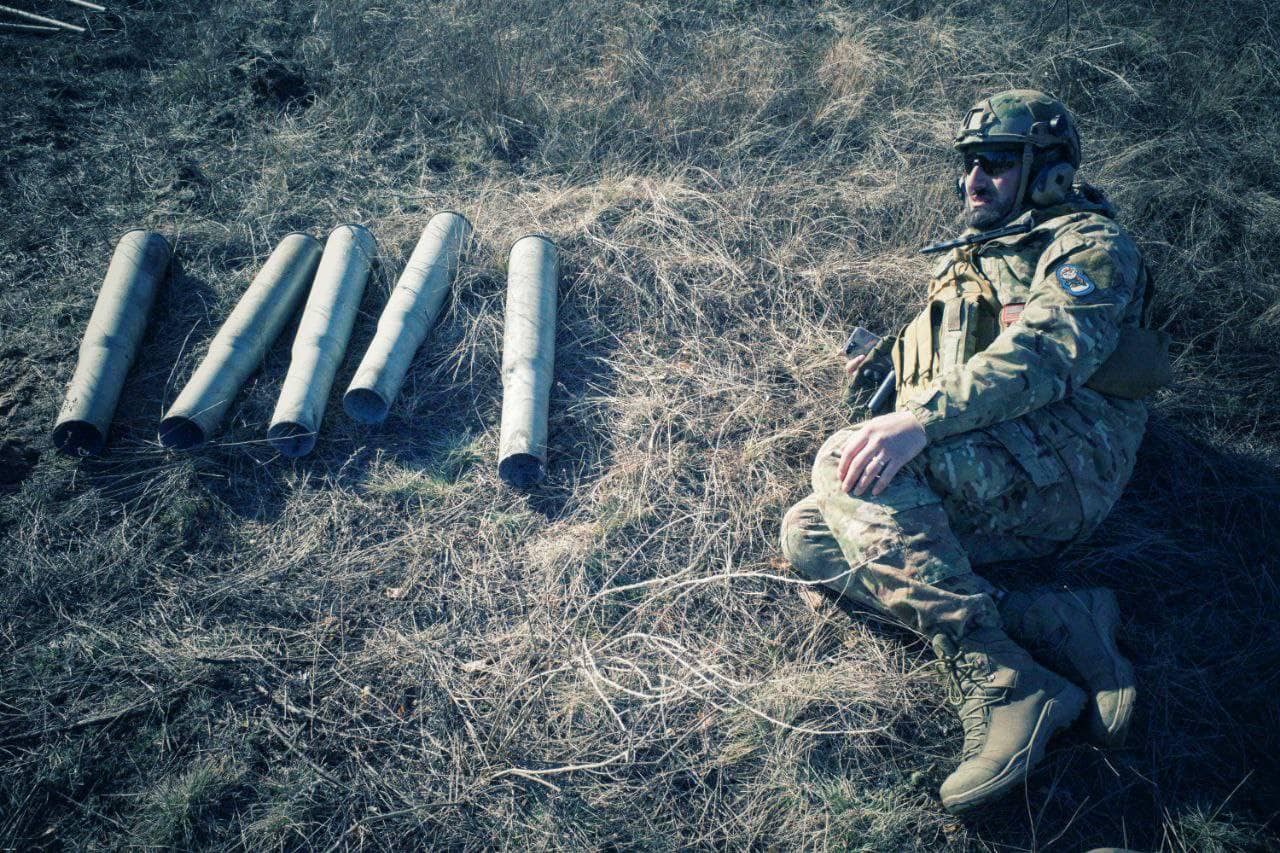
- In which areas did you have to fight?
- In October 2022, we were in Bakhmut. For almost two months we were stationed in the area of Klishchiyivka, Ozaryanivka, Kurdyumivka. We didn't give up a single platoon stronghold to the enemy. Then, from the end of January 2023, we fought again in the Bakhmut direction. When the cold weather started, we, the mortar men, had problems with ammunition. I was wounded near Bakhmut. My comrades came and evacuated me. Then there were hospitals, surgeries...
- How much time did it take you for treatment and rehabilitation?
- Three months, and then I had a month of vacation. I went home to Azerbaijan and saw my mother.
- How did your mother get out of Kyiv?
We sent her along with other civilians in the first week after the full-scale Russian attack. Then the Azerbaijani embassy urgently organized a train ride to Romania, and from there we got to Baku.
My mother was very worried about my brother and me. I did not tell her that I fought in Bakhmut until the last moment. I told her I was a volunteer; I sent her photos and asked her not to worry.
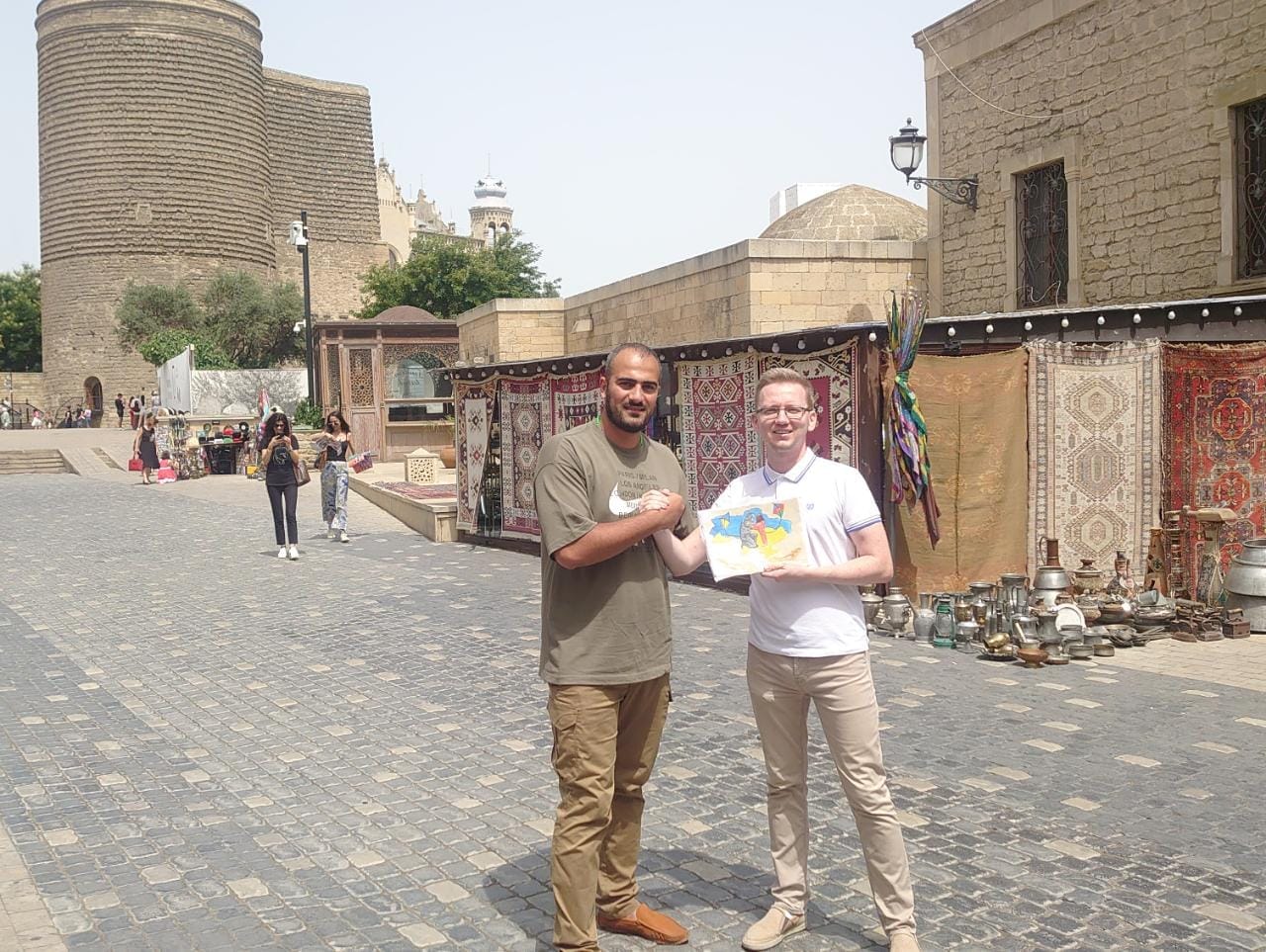
- How did you and your parents end up in Ukraine? Where did you learn such a flawless Ukrainian language?
- I owe my Ukrainian language to my first teacher, Hulyuk Nina, from the 238th school in Kyiv. My parents came to Ukraine with us sons in 2002. I was five years old. My brother was two years older.
We had a choice: 238 was a Ukrainian school, and 247 was a Russian school opposite. My father said that we live in Ukraine, so we will study only in a Ukrainian school. And then Nina raised me to love the language and Ukraine.
My parents were forced to leave Azerbaijan by constant military threats and a difficult economic situation. Our family comes from Nagorno-Karabakh. The village of Talysh was occupied. Now, thank God, we have regained our territory.
- You have several professions and are still studying. What is your motivation for having several degrees?
- After high school, I graduated with honors from the Interregional Academy of Personnel Management (MAUP) College of Economics and Law. Then I studied at the National Academy of Internal Affairs. I also graduated from the MAUP Academy, where I studied human resources management. Now I am studying part-time at the Institute of Shevchenko University for the second year, mastering strategic management of public administration.
With knowledge, you can improve public administration. I believe that we need to change. It is necessary to involve young people in government, in particular those who want Ukraine to really become a European state, who know how to fight for it.
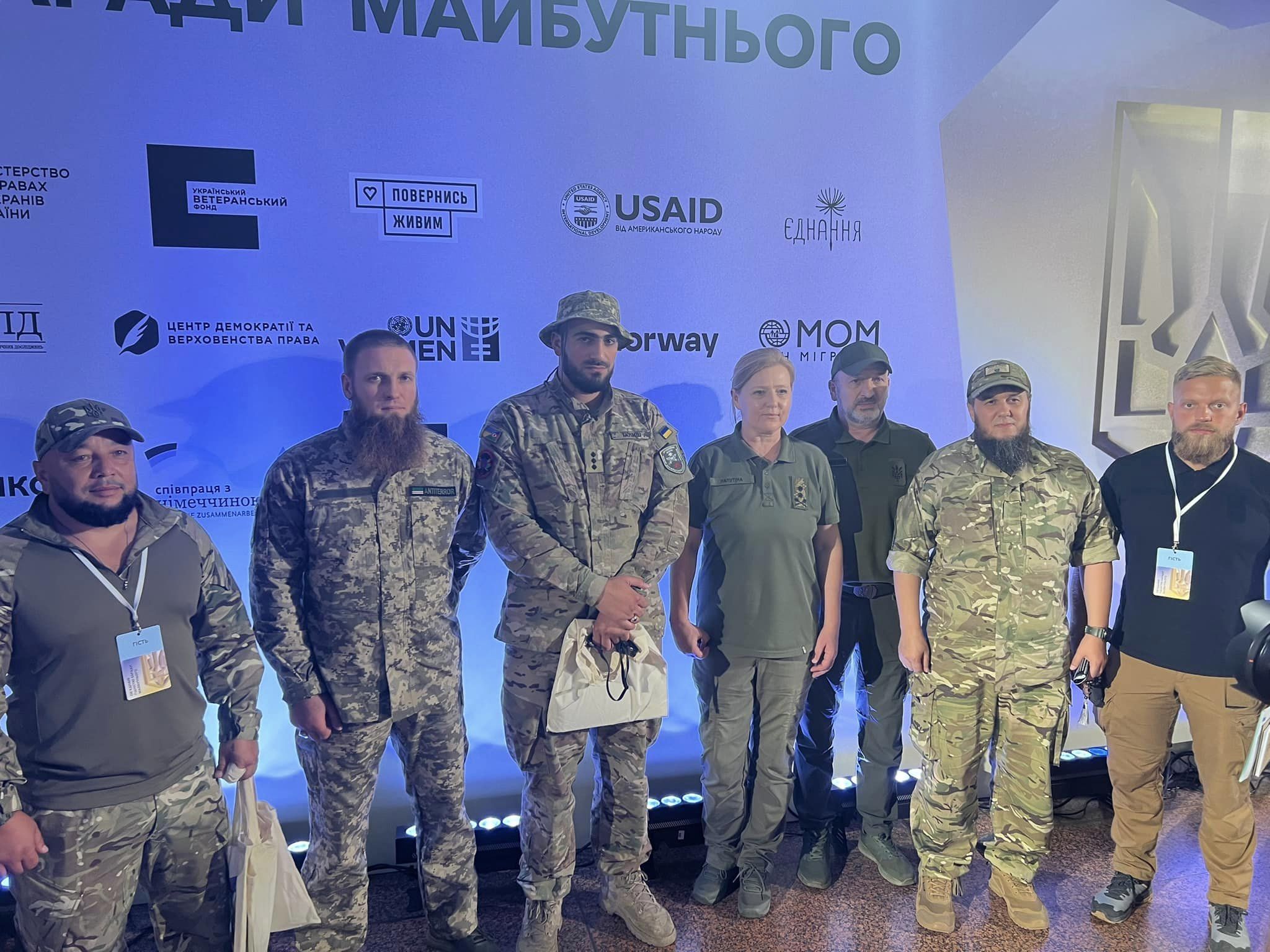
"I AM AGAINST THE MOBILIZATION OF 20-YEAR-OLDS"
- How many Azerbaijanis are defending Ukraine?
- About 1,000 people are serving, I know this from talking to my brothers-in-arms. The head of the Azerbaijani volunteer diaspora, Hidayiz Trafilov, has been a combatant since 2014 and served in the Kulchytsky Battalion. He went through Debaltseve and Shyrokyne. He is a respectful and fearless man, and we are very grateful to him for that. Hidayiz is a war invalid, he was "written off", but during the full-scale war he was with us in Bakhmut, helping to perform tasks.
Rustam Alizadeh has been fighting since 2014: first he was in the Aidar battalion, then in a GUR unit. He was injured in Zaporizhzhia region, and for a long time he was with Ilizarov's apparatus. We can go on for a long time...
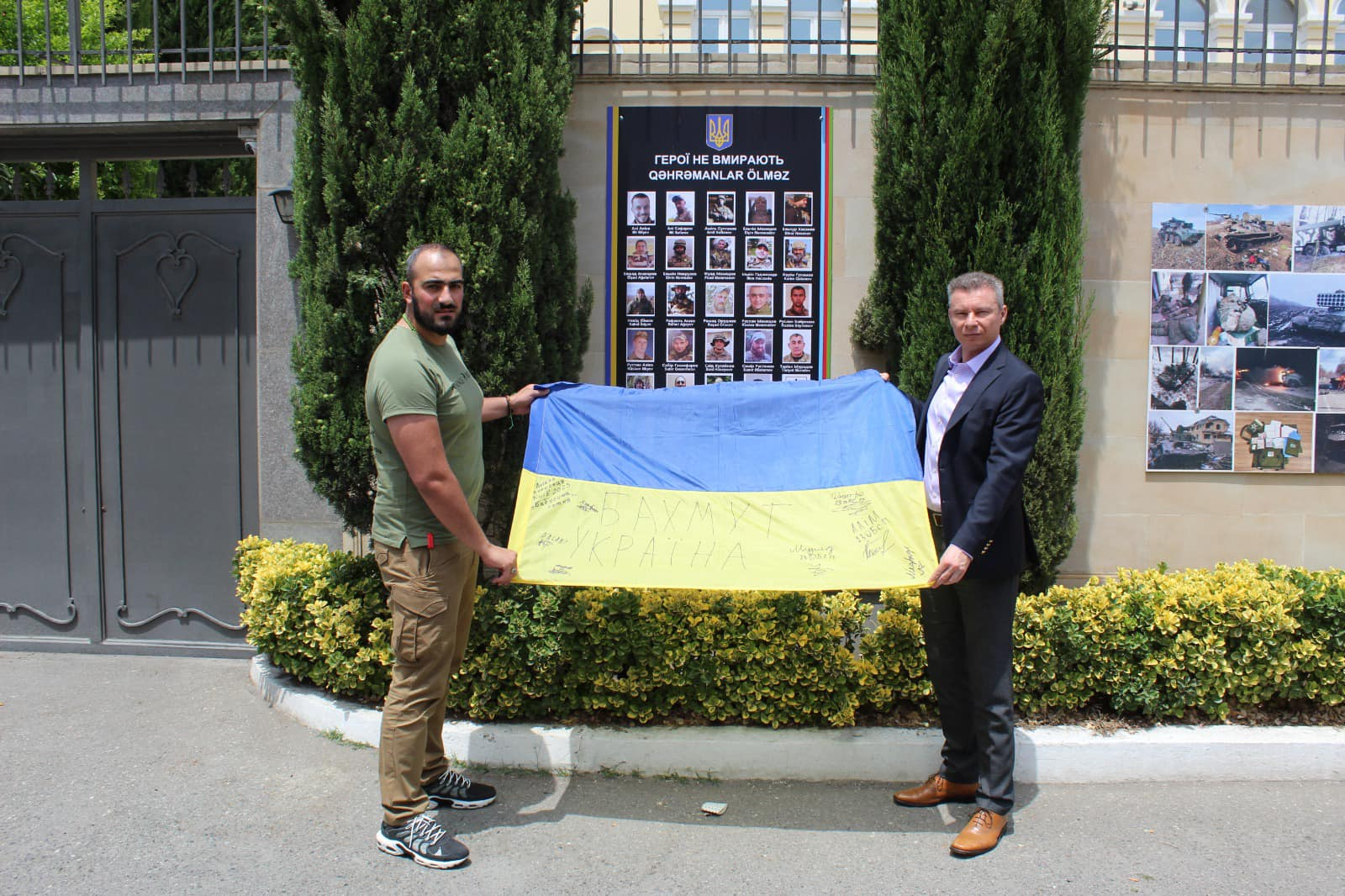
- How many Azerbaijani soldiers who defended Ukraine returned on a shield?
- More than 40 soldiers were killed... In the battle for Bakhmut, 30-year-old volunteer Ilkin Hajiyev was killed, in the Mykolaiv direction - Said Vasif oglu Huseynov...
Some of the fallen were buried in their homeland, others remained in the land of Ukraine for eternal rest. My brother-in-law Charim first fought in the Kyiv region and died in the Donetsk region. We had a fellow countryman, Amil, who died in the Donetsk sector near Bakhmut...
In Azerbaijan, there is a wall of fallen Azerbaijani soldiers. When I was there in the summer, there were more than 20 photos on it...
- Your brothers in faith are the volunteers of the Sheikh Mansur Chechen Battalion who are fighting for Ukraine. Have you met them?
- I am very grateful and honored to the Sheikh Mansur battalion. They are people of high morals, honor, and dignity. When I asked Muslim, the commander of the Chechen battalion, to help me bring my unit to Bakhmut (there is only one road of life there), he forbade us to go there until he sent his men to check and clear the way.
The volunteers of the Chechen battalion are ideological warriors. Russia started the war against me and all Azerbaijanis, as well as against them, in January 1990. Therefore, both they and we know what we are fighting for.
- For almost 23 months now, Ukraine has been living in a state of Great War. How much harder has it become for you to fight?
- The guys are tired not so much morally as physically. This doesn't mean that there will be any pause. The war has become protracted - this is a fact. However, the guys are not retreating, they are not ready to give up. Everyone is focused on uniting now, gaining strength, accumulating weapons to go on and take back what is ours. We understand that the situation is difficult, we have losses, it is a war. However, our soldiers are helping each other. It doesn't matter whether it is the Armed Forces, the National Police, the State Emergency Service, the Territorial Defense Forces (TDF) or the DIU. We are all together because we have the same goal and purpose - the victory of Ukraine.
- How should the mobilization, which is so much talked about today, be carried out?
- First of all, motivated people - volunteers - should fight. I understand that they are already fighting... Those mobilized should be given the opportunity to learn how to fight. It was the well-trained Ukrainian defenders who were able to slap the enemy - to repel his attacks and drive him away in the Kyiv region, in the Kharkiv direction. I am against taking 20-year-olds. Young people are the foundation that will make Ukraine a developed European state. We are standing on the front line for our children and grandchildren to see the future.
Valentyna Samchenko, Kyiv
Photo courtesy of Murad Nasirov
